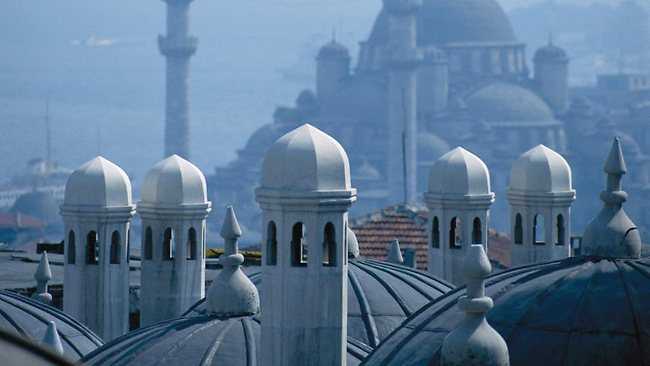By Yesim Comert and Gul Tuysuz, CNN
November 22, 2011 — Updated 1836 GMT (0236 HKT)
Istanbul (CNN) — Several journalists accused of being involved in an alleged plot to overthrow the Turkish government appeared in an Istanbul court on Tuesday for the first hearing in a trial that is seen as a test for media freedoms in Turkey.
The 13 defendants in the case include two prominent investigative journalists, Nedim Sener and Ahmet Sik as well as editors of Oda TV, a hard-line secularist internet news portal critical of the government of Prime Minister Recep Tayyip Erdogan. They have been in prison awaiting trial for nine months. One of the defendants, a former intelligence officer, died recently of a heart attack while in jail.
The courtroom in the new sprawling judiciary compound was packed with journalists, foreign observers and family members of the defendants. A limited number of people were allowed into the courtroom due to lack of space, despite the fact that it was an open public hearing.
The trial was adjourned until December 26 to wait for a higher court to rule on a motion to replace the presiding judge, Resul Cakir. Defense lawyers argued that the judge could not rule impartially since he was a plaintiff in a separate case against one of the defendants.
Journalists as well as local and international representatives from human rights and press freedom organizations gathered in front of the court house demanding release of the jailed journalists. They carried banners in Turkish and in English that said “set journalists free” and “justice right now.”
International activists expressed growing concern over freedom of expression in Turkey, a country that is often seen as a model Muslim democracy for the Middle East. “This is the third time already we came to Turkey this year. It is very seldom we come to a country so many times. This time we are here to express our anger,” said Johann Bihr, head of the Europe and Central Asia desk of Reporters Without Borders.
Pavol Mudry, vice chair of the International Press Institute said, “It is not acceptable for journalists to be jailed for their opinion” and hoped to convey this message to the Turkish authorities in meetings with them this week.
Turkey is among the bottom 40 countries of the world on the press freedom index of Reporters Without Borders, dropping from 102 to 138 since 2008. According to the Turkish Journalists Union, Turkey is currently holding at least 63 journalists in prison.
One of the journalists behind bars is Sik. Prior to his arrest he was working on an investigative book known as “Imam’s Army,” about a powerful religious group led by Fethullah Gulen, a Muslim preacher and educator whose opponents see him as an influential voice for opposition to Turkish secularism. Gulen now lives in self-imposed exile in Pennsylvania.
Police confiscated draft copies of the book during a raid on Sik’s family home in March 3. But the text showed up on the internet in defiance of the law and was downloaded by many. Last week the book was published in an act of civil disobedience with the signature of 125 journalists and writers.
Sik’s wife, Yonca, took a copy of the book to her husband in prison. When asked if she would want her husband to change the focus of his writings when he gets out of prison, she said “We’re not living through this for the first time. It’s what makes Ahmet who he is. We’ve come face to face with the state before.”
The government claims that none of the defendants in the case are being charged for their journalistic work but are in fact being accused of aiding and abetting the efforts of an alleged ultra-secularist gang called Ergenekon aimed at toppling Erdogan’s Islam-inspired government.
During the tenure of his career, Sik focused on exposing human rights violations by the state, rings of corruption within the government and unveiling the abuses of the Ergenekon gang. And that is what angers Sik more than anything else. “Yes, I am still very angry. It is ridiciulous that I am being charged with being in an organization that I could never politically be a part of or share the views of,” Sik wrote in response to questions CNN submitted to him in prison.
Sener, Sik’s prisonmate, is also a vocal critic of crimes committed by the state apparatus. He was awarded as a World Press Freedom Hero award from the International Press Institute for his investigative book about the 2007 assassination of Turkish-Armenian newspaper editor Hrant Dink and alleged involvement of state security officials.
In a written interview from prison, Sener told CNN, “The important thing is not that I am in prison. What is important is to find the truth and regardless of the cost to write it. I am willing to pay any price for that.”
via Turkish journalists face judge in test of media freedom – CNN.com.
